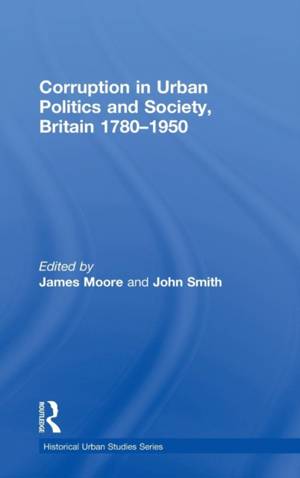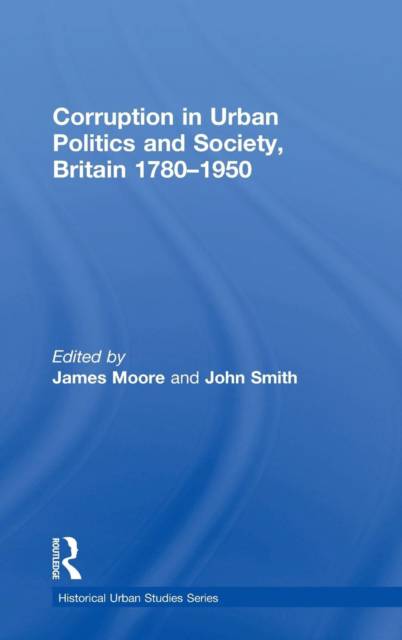
Bedankt voor het vertrouwen het afgelopen jaar! Om jou te bedanken bieden we GRATIS verzending (in België) aan op alles gedurende de hele maand januari.
- Afhalen na 1 uur in een winkel met voorraad
- In januari gratis thuislevering in België
- Ruim aanbod met 7 miljoen producten
Bedankt voor het vertrouwen het afgelopen jaar! Om jou te bedanken bieden we GRATIS verzending (in België) aan op alles gedurende de hele maand januari.
- Afhalen na 1 uur in een winkel met voorraad
- In januari gratis thuislevering in België
- Ruim aanbod met 7 miljoen producten
Zoeken
Corruption in Urban Politics and Society, Britain 1780-1950
John Smith
€ 305,45
+ 610 punten
Uitvoering
Omschrijving
Despite much recent interest in the area of urban governance, little work has been done on the changing ethical standards of urban leaderships, 'governing' institutions or the policing of public life. Yet the issue of ethical standards in public life has become a central concern in contemporary public discourse; with issues of public probity, moral order and personal standards re-emerging as central features of political debate. This volume places these debates into their historical perspective by examining the linkages between processes of 'modernisation', urbanisation and the ethical standards of governance and public life. It considers how ethical debates arise as a result of differential access to positions of authority and from competition for public resources. The contributions are drawn from a wide range of scholarly and disciplinary backgrounds and provide a broad analysis of the phenomenon of corruption, assessing how debates about corruption arose, the narratives used to criticise established modes of public conduct and their consequences for urban leadership.
Specificaties
Betrokkenen
- Auteur(s):
- Uitgeverij:
Inhoud
- Aantal bladzijden:
- 196
- Taal:
- Engels
- Reeks:
Eigenschappen
- Productcode (EAN):
- 9780754637059
- Verschijningsdatum:
- 28/09/2007
- Uitvoering:
- Hardcover
- Formaat:
- Genaaid
- Afmetingen:
- 156 mm x 234 mm
- Gewicht:
- 453 g

Alleen bij Standaard Boekhandel
+ 610 punten op je klantenkaart van Standaard Boekhandel
Beoordelingen
We publiceren alleen reviews die voldoen aan de voorwaarden voor reviews. Bekijk onze voorwaarden voor reviews.









